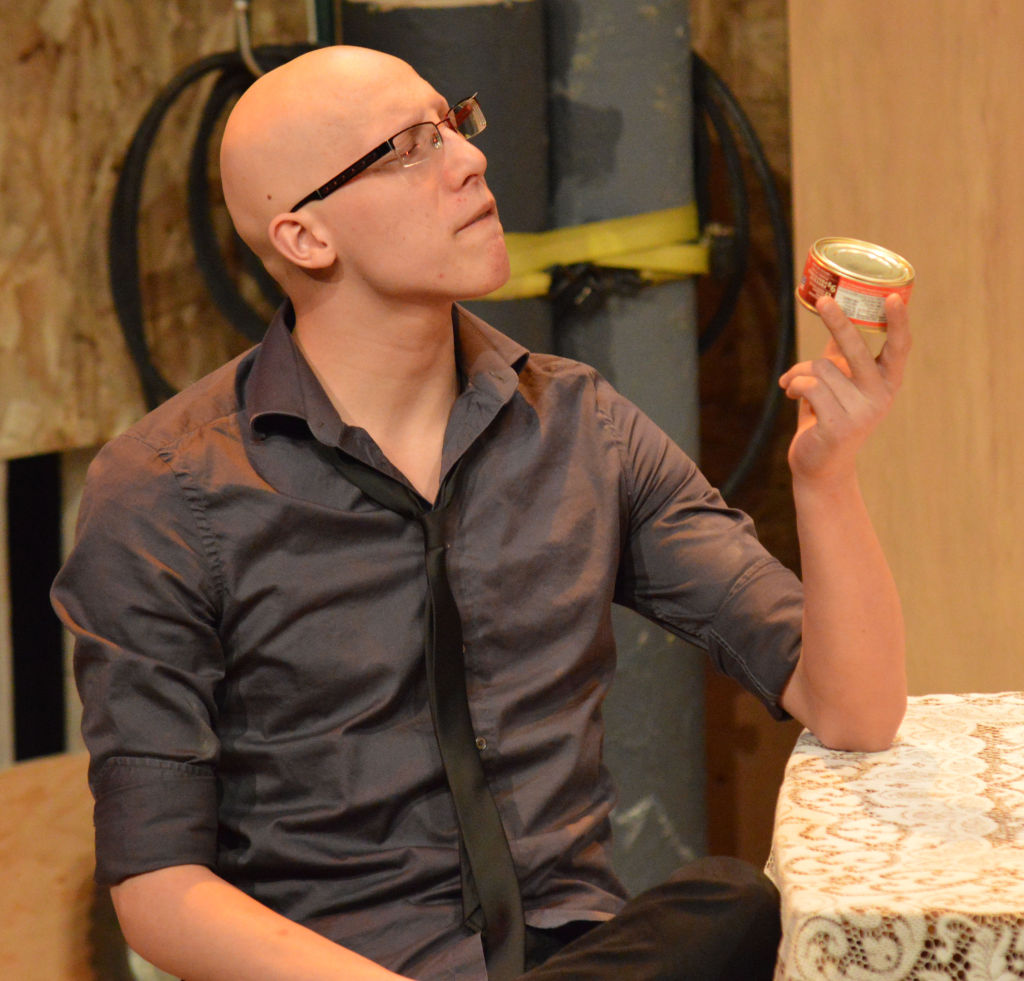
Imagine food becomes so expensive you can no longer afford your regular diet and you start craving dog food. Groceries become so unattainable, that stealing from the supermarket is necessary in order to survive.
This is the life of Antonia and Margarita.
Set in a working suburb of Milan in the mid-70s, They Won’t Pay? We Won’t Pay! is the story of two housewives who resort to stealing so they can bring food home for their families but cannot let their honest husbands find out about it. Giovanni, Antonia’s husband, says he would rather starve than steal.
The play was staged March 2-6 by the Theatre Arts department, one of two that is part of the second-year students’ final project. The second play will be staged in April.
Part-time instructor Mary Ellis is directing this production of Dario Fo’s piece. Fo is an Italian writer and playwright who won the literature Nobel Prize in 1997.
Ellis chose this play for her students because of its comedic potential and its social theme.
“It’s very, very funny, but it’s also political” she said. “It’s basically about the oppressed lower classes.”
She also wanted to expose her students to an author and a certain kind of theatre not very well known among young Canadians.
This, however, has not been an obstacle for some of her students being able to identify with the characters in the play.
Theatre student Emi Lanthier, 22, who is playing the part of Antonia in the production, said she can easily relate to some of the issues faced by the characters in the story, especially hers.
“I am a young woman in a committed relationship and I’m trying to make my way,” said Lanthier. “I think at the end of the day that’s kind of what we are all really doing. It’s a show full of characters that are very easily relatable.”
For Charlotte Weeks, 21, who’s also in the program and is playing Margarita in the show, the similarities between her and her character are more specific.
Weeks described Margarita as a very enthusiastic character who gets caught up in the moment. “She’s very passionate,” she said. “All of her feelings, whether she’s scared or excited, she feels them extremely.”
Aside from actors and the director, crew and designers play a big part in developing this production. That is why half the class is involved in this production as part of the crew.
The theatre program students produce two different plays in their last semester. This way all students get the chance to experience being part of the cast for one and part of the crew for the other.
Paige Cheverie-Sulley, 19, is also in her last year of the program and is in charge of make-up for this show. She likes acting but also enjoys the opportunity of being part of the crew.
“It gives you a chance to get more experience,” she said.
The production also counts on the help of experienced theatre folks as Richard Cliff, who is the production manager, and lighting designer Fred Malpass.
According to Malpass the trick with lighting design is to first take care of the basics. “Make sure you can see everyone,” and then, set the right angles and colours depending on the mood of the play. “If no one notices the lighting, I’ve done a good job,” he said.
Despite his experience and his involvement in other high profile shows, Malpass likes working in these productions because he gets to see the whole process and the development of the students’ work.


